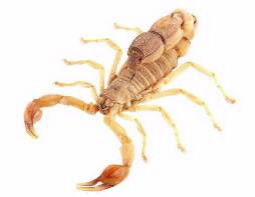FOR IMMEDIATE RELEASE
ACS News Service Weekly PressPac: January 25, 2012
Scorpions inspire scientists in making tougher surfaces for machinery
Taking inspiration from the yellow fattail scorpion, which uses a bionic shield to protect itself against scratches from desert sandstorms, scientists have developed a new way to protect the moving parts of machinery from wear and tear. A report on the research appears in ACS' journal Langmuir.
Zhiwu Han, Junqiu Zhang, Wen Li and colleagues explain that "solid particle erosion" is one of the important reasons for material damage or equipment failure. It causes millions of dollars of damage each year to helicopter rotors, rocket motor nozzles, turbine blades, pipes and other mechanical parts. The damage occurs when particles of dirt, grit and other hard material in the air, water or other fluids strike the surfaces of those parts. Filters can help remove the particles but must be replaced or cleaned, while harder, erosion-resistant materials cost more to develop and make. In an effort to develop better erosion-resistant surfaces, Han and Li's group sought the secrets of the yellow fattail scorpion for the first time. The scorpion evolved to survive the abrasive power of harsh sandstorms.
They studied the bumps and grooves on the scorpions’ backs, scanning the creatures with a 3-D laser device and developing a computer program that modeled the flow of sand-laden air over the scorpions. The team used the model in computer simulations to develop actual patterned surfaces to test which patterns perform best. At the same time, the erosion tests were conducted in the simple erosion wind tunnel for groove surface bionic samples at various impact conditions. Their results showed that a series of small grooves at a 30-degree angle to the flowing gas or liquid give steel surfaces the best protection from erosion.
![]()
Contact
Science Inquiries: Michael Woods, Editor, 202-872-6293
General Inquiries: Michael Bernstein, 202-872-6042


